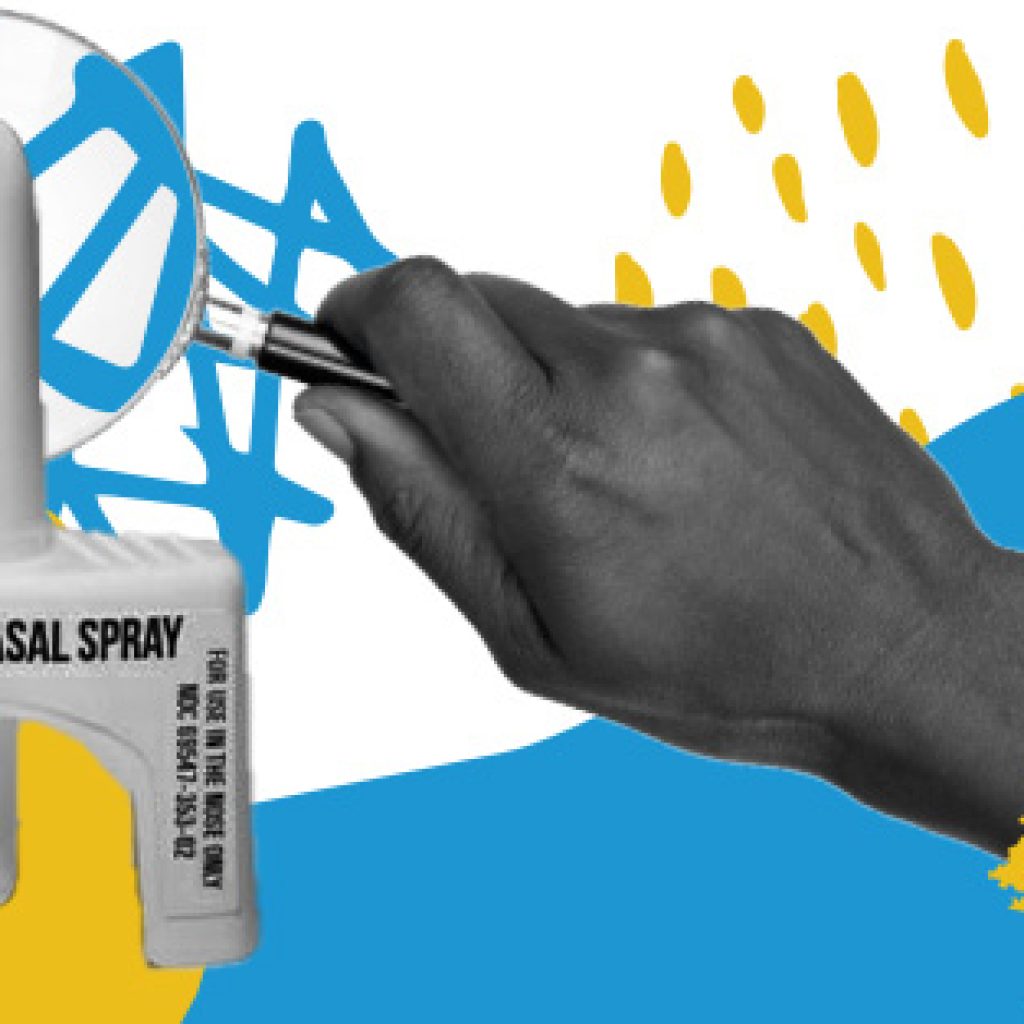Building Stronger Therapists: The Impact of Skillful Clinical Supervision
This post was originally published in September 2021 and has been updated, to read the original version follow this link.
Are you a behavioral health provider considering the rewarding path of becoming a clinical supervisor? If the answer is POSSIBLY or YES, then this post is for you! In addition, we have new updates and training opportunities for existing clinical supervisors. We’ll also share the requirements for becoming a supervisor in Nevada and pathways to licensure and certification, training opportunities, and a plethora of resources.
Supervision is important aspect of on-going support for new counselors. It provides a safe place for new counselors to develop their skills, receive ethical guidance, self-reflect, discuss treatment plans, uphold accountability, prevent burnout, continue learning, develop cultural competence, build confidence and manage risk. Let’s take a look at each of these aspects and it’s importance in developing competence as a s counselor.

Skill Development: Supervision provides counselors with the opportunity to enhance their clinical skills. Through regular discussions with a more experienced supervisor, counselors can receive feedback on their techniques, interventions, and approaches. This feedback helps counselors refine their skills and become more effective in their work.

Ethical Guidance: Counselors often encounter complex ethical dilemmas in their practice. Supervision allows them to discuss these dilemmas with a seasoned professional who can provide guidance based on ethical principles and guidelines. This helps counselors make informed decisions that prioritize the well-being of their clients.

Self-Reflection: Effective counseling requires self-awareness and introspection. Supervision encourages counselors to reflect on their own feelings, biases, and reactions to clients. This self-awareness can lead to better understanding and management of countertransference and other personal factors that may impact the therapeutic relationship.

Client Welfare: Supervision ensures that counselors are providing the best possible care to their clients. By reviewing cases and treatment plans with a supervisor, counselors can identify potential blind spots, consider alternative interventions, and ensure that their clients’ needs are being met appropriately.

Accountability: Supervision holds counselors accountable for their work. Knowing that their actions and decisions will be reviewed by a supervisor encourages counselors to uphold professional standards and engage in ethical practices.

Burnout Prevention: The counseling profession can be emotionally demanding, and counselors are at risk of burnout. Regular supervision provides a safe space for counselors to discuss their own emotional reactions to clients, manage stress, and receive support to prevent burnout.

Continuous Learning: The field of mental health is constantly evolving, with new research, interventions, and techniques emerging over time. Supervision allows counselors to stay updated on the latest developments and integrate evidence-based practices into their work.

Cultural Competence: Counselors work with diverse populations, and cultural competence is essential for providing effective therapy. Supervision facilitates discussions about cultural factors, biases, and sensitivities, helping counselors become more attuned to their clients’ unique backgrounds and needs.

Confidence Building: Supervision boosts counselors’ confidence by validating their strengths and helping them address areas for growth. Feeling supported and validated by a supervisor can enhance a counselor’s self-assurance in their abilities.

Risk Management: Supervision helps counselors identify and manage potential risks in their practice, such as dealing with high-risk clients or situations. By discussing challenging cases and potential issues, counselors can develop strategies to mitigate risks and ensure client safety.
Supervision is a vital component of a counselor’s professional development, ensuring they provide high-quality, ethical, and effective care to their clients while maintaining their own well-being. Being a supervisor is an opportunity to share your knowledge and expertise with the up and coming professionals in the field. In addition, it has benefits for the supervisor themselves and the profession as a whole which include the following:
- Professional Growth: Serving as a supervisor allows experienced counselors to further develop their own clinical and supervisory skills. Through the process of guiding and mentoring new counselors, supervisors deepen their understanding of various therapeutic approaches, ethical considerations, and the complexities of client cases.
- Expertise Recognition: Being selected as a supervisor is often a recognition of a counselor’s expertise and contributions to the field. It highlights their advanced knowledge and ability to guide and mentor less experienced professionals.
- Contribution to the Field: Supervisors play a crucial role in shaping the next generation of counselors. By sharing their knowledge, insights, and experiences, they contribute to the overall growth and advancement of the counseling profession.
- Personal Fulfillment: Many supervisors find personal satisfaction in helping new counselors develop their skills and succeed in their careers. Witnessing the growth and progress of their supervisees can be deeply rewarding.
- Enhanced Communication Skills: Effective supervision requires clear communication and active listening. Serving as a supervisor hones these important communication skills, which can be valuable in various professional and personal contexts.
- Reflective Practice: Supervisors often engage in discussions about cases and interventions with their supervisees. This reflective process encourages supervisors to critically evaluate their own approaches, leading to ongoing self-improvement and refinement of their counseling techniques.
- Networking and Collaboration: Supervisors often interact with other professionals, including colleagues, other supervisors, and educators. This networking can lead to collaborations, research opportunities, and the sharing of best practices within the counseling community.
- Continued Learning: The counseling field is constantly evolving, and serving as a supervisor necessitates staying updated on the latest research, interventions, and therapeutic modalities. This commitment to continuous learning benefits both supervisors and their supervisees.
- Leadership Development: Supervisors assume a leadership role in guiding and supporting new counselors. This experience can enhance their leadership skills and potentially open up opportunities for leadership positions within organizations or the broader field.
- Contributing to Quality Care: By ensuring that new counselors are well-trained and competent, supervisors contribute to the delivery of high-quality mental health services. This ultimately benefits clients and the community by promoting effective and ethical counseling practices.
- Elevating the Profession: Effective supervision helps raise the standards of the counseling profession by fostering a culture of ongoing learning, accountability, and ethical practice. Well-trained and supported counselors contribute to the overall credibility and reputation of the field.
In essence, being a supervisor for new counselors is a multifaceted role that offers personal and professional growth opportunities, while also positively impacting the development of the counseling profession as a whole.
Requirements In Nevada For Becoming A Clinical Supervisor
To become certified as an Alcohol & Drug Counselor Internship Supervisor, the following requirements must be met:
- An LADC/LCADC must be licensed for two years and a CADC must be licensed for three years prior to applying to become a clinical supervisor.
- Complete both classes in the following Clinical Supervision training series:
- 14-hour online Clinical Supervision Foundations Course hosted on the Healthy Knowledge Website.
Note: this course is not hosted by CASAT. Questions about this course can be directed to 1-844-284-9616. - Complete the Clinical Supervision for Alcohol and Drug Counselors 12 hour course with CASAT Learning. This course is offered twice per year alternating between online and in-person.
- Submit your application for Supervisor Certification, along with you certificates of completion from the above trainings, to the Board of Examiners for Alcohol, Drug and Gambling Counselors office via your LICENSEE portal. There is a $60.00 processing fee for the application.
Requirements In Nevada For Renewing A Clinical Supervisor Certification
For existing Clinical Supervisors seeking to renew your certification with Board of Examiners for Alcohol, Drug and Gambling Counselors, the following requirements must be met:
- Complete the Clinical Supervision Refresher 6 hour course with CASAT Learning. This course is offered twice per year alternating between live webinar and in-person. CASAT Learning now offers a self-paced, online Clinical Supervision Refresher course.
- Submit your renewal application, along with your certificate of completion from the above training, to the Board of Examiners for Alcohol, Drug and Gambling Counselors office via your LICENSEE portal.
New Information For Alcohol And Drug Counselors
Effective July 1, 2023, the following revisions to NRS 641C will be implemented:
Licensed Clinical Alcohol and Drug Counselor Supervisors (LCADC-S) may supervise problem gambling counselor interns, provided that the licensed clinical alcohol and drug counselor fulfills the following criteria and submits an application to the Nevada Board of Examiners for Alcohol, Drug and Gambling Counselors to become an approved Supervisor for Certified Problem Gambling Interns:
- The LCADC must be approved by the Board to engage in supervision.
- LCADC candidates are required to complete a minimum of 12 hours of SupervisionCoursework, to include topics relevant to the supervision of CPCG-I’s.
- Successfully complete a minimum of 30 hours of instruction specific to problem gambling
Instructions to apply for an LCADC Supervisor license to supervise Certified Problem Gambling Interns:
- Complete 12 hours of the required Clinical Supervision Coursework and be a supervisor in good standing with the Nevada Board of Examiners for Alcohol, Drug and Gambling Interns.
- Complete CASAT 30-hour self-paced Problem Gambling Counselor Foundations course no more than 6 months prior to submitting an application. The 30-hour self-paced course can be located at: https://www.casatlearning.org/component/eventbooking/self-paced/problem-gambling-intern-readiness?Itemid=762
- Login to Licensee Portal (NOT Application Portal). This is the one application that is in theLicensee Portal since only current licensees can apply.
- On the left-hand side of the page click Supervisor Application.
- Upload Initial Clinical Supervisor Training certificate(s).
- Pay $60 fee and submit.
Pathways To Licensure And Certification
In the Catalyst blog post from November 18, 2020: Choose Your Pathway To An LADC, LCADC, CADC, or CADC-I in Nevada: Featuring Brand-New Flowcharts for Each! The pathways are clearly outlined in flowcharts that were developed by CASAT for LADC, LCADC, CADC, CADC-I, and Nevada Certified Problem Gambling Counselor. Alcohol & Drug General Information and all of the flowcharts may also be downloaded from the State of Nevada Alcohol & Drug Abuse Counselors website.
To learn about obtaining a Certified Prevention Specialist (CPS) certification in Nevada, first read the Catalyst blog post Prevention Specialist Certification: What Is It and Why Do I Need It? 10 Reasons to Become a Certified Prevention Specialist
A Great Resource For Additional Information
One excellent way to find out more about clinical supervision is to access the National Frontier and Rural Telehealth Education Center (NFARtec). The NFARtec techies people how to use telehealth technologies to deliver addiction treatment and recovery services, and that includes clinical supervision. The Technology-Based Clinical Supervision Guidelines are downloadable from the NFARtec website or by using this link (Barton et al., 2016). The document provides background and history of technology-based clinical supervision, the many benefits of using technology to deliver it, and clearly outlines the support and infrastructure needed to deliver clinical supervision through the use of technology.
Applicable Board Meetings And Regulations
All Nevada Board meeting scan be found on the Board Meetings page of the Nevada State Board of Examiners for Alcohol, Drug and Gambling Counselors website.
Applicable regulations can also be found on the Regulations page of the Nevada State Board of Examiners for Alcohol, Drug and Gambling Counselors website. Please note that the Board voted to adopt a temporary regulation allowing clinical supervisors to electronically supervise their interns due to the pandemic. The Board voted to make the temporary regulation permanent on August 31, 2021. Please be aware that follow-up workshops will be coordinated by the Board prior to November 2021, so watch for notice of those tentative workshops. The temporary regulation can be viewed on the Nevada State legislature Register. Note that since the new telehealth regulation does not currently include being able to use telehealth supervision for employees who are not employed at the same agency as the supervisor, there is some confusion and clarification should be forthcoming in announcements of upcoming Clinical Supervision trainings sponsored by CASAT Learning.
Training Opportunities
CASAT Learning is offering a Clinical Supervision 2-day in-person class in Las Vegas on September 13 & 14, 2023 and in Reno on September 27 & 28, 2023. The objectives of the training are to facilitate development of a personal model of supervision and practice skills to deliver high quality, effective clinical services to those seeking assistance for substance use disorders. This training prepares clinical supervisors to observe job performance, provide feedback and coaching, prioritize learning needs, develop achievable learning objectives, and continue monitoring performance to assess effectiveness. For more information about key topics/concepts and to register, please visit the CASAT Learning Website.
For existing Clinical Supervisors in Nevada seeking to renew their license, checkout CASAT Learning’s 6 CEU, self-paced online course, Clinical Supervision Refresher. You can also attend our monthly consultation group which is held on the second Tuesday of every month.
Clinical Supervision Resources And References
TAP 21-A: Competencies for Substance Abuse Treatment Clinical Supervisors lists competencies for effective supervision in substance use disorder treatment programs. It provides step-by-step guidance for implementing comprehensive supervisory training and workforce development.
Performance Assessment Rubrics Developed as a companion product to TAP 21. It describes counselor/clinician proficiency along a continuum marked by four distinct benchmark descriptions of counselor ability for each of the competencies. Such a continuum is referred to as a rubric. More will be said about the continuum later.
TIP 52: Clinical Supervision and Professional Development of the Substance Abuse Counselor offers tips for clinical supervisors in the substance use disorder treatment field. It covers functions of a clinical supervisor, and highlights stages of professional development for counselors and clinical supervisors.
TIP 61: Behavioral Health Services for American Indians and Alaska Natives provides behavioral health professionals with practical guidance about Native American history, historical trauma, and critical cultural perspectives in their work with American Indian and Alaska Native clients. The TIP discusses the demographics, social challenges, and behavioral health concerns of Native Americans. It highlights the importance of providers’ cultural awareness, cultural competence, and culture-specific knowledge. The TIP also helps administrators, program managers, and clinical supervisors foster a culturally responsive environment for American Indian and Alaska Native clients. Specific topic areas include workforce development strategies, program and professional development considerations, and culturally responsive policies and procedures.
ATTC Resources
Motivational Interviewing Assessment: Supervisory Tools for Enhancing Proficiency (MIA:STEP) (Developed by Global ATTC) The MIA:STEP Blending Team designed empirically supported mentoring products to enhance the MI skills of treatment providers, as well as supervisory tools to fortify a supervisor’s ability to provide structured, focused, and effective clinical supervision. MIA:STEP introduces an effective strategy for observation-based clinical supervision, the use of which has potential to improve counselor skills beyond MI.
Clinical Supervision Foundations This course consists of two interconnected components: an online course and a face-to-face training and is intended for supervisors in substance use disorder (SUD) treatment and recovery settings. The course totals 30 contact hours and introduces clinical supervisors, along with persons preparing to become supervisors, to the knowledge and skills essential to the practice of supervision. The Clinical Supervision Foundations course is especially suited for: Beginning clinical supervisors; Clinical Supervisors who would like to enhance or review the fundamental skills needed to be a successful clinical supervisor; Counselors who are being groomed to become clinical supervisors; and Behavioral healthcare professionals who want to learn more about clinical supervision.
Additional ATTC products can be found in the Products & Resources Catalog.
Books And Articles For Further Reading On Clinical Supervision:
Barton, T., Roget, N. A., & Hartje, J. (2016). Technology-Based Clinical Supervision: Guidelines for Licensing and Certification Boards. Reno, Nevada: National Frontier and Rural Addiction Technology Transfer Center, University of Nevada, Reno.
Bernard & Goodyear, B. (1998). Fundamentals of Clinical Supervision. (2nd ed.). Boston: Allyn & Bacon.
Gallon, S. (2002) Clinical Supervision: Building Chemical Dependency Counselor Skills. Portland, OR: Northwest Frontier.
Powell, D. & Brodsky, A. (2004). Clinical Supervision in Alcohol and Drug Abuse Counseling: Principles, Models, Methods. San Francisco: Jossey-Bass.
Stoltenberg, C. D., & Delworth, U. (1987) Supervising Counselors and Therapists. San Francisco, CA: Jossey-Bass.
Stoltenberg, C. D., McNeil, B., & Delworth, U. (1998). IDM Supervision: An Integrated Developmental Model for Supervising Counselors and Therapists. Jossey-Bass Publishers, San Francisco, CA.
Models of Supervision. Retrieved from the World Wide Web on September 22, 2005: http://soeweb.syr.edu/chs/OnlineField.supervision/models.htm
Blog Post Tags:
Related Blog Posts
Related Learning Labs
Related Resources
.
- Buscar Tratamiento de Calidad para Trastornos de uso de Sustancia (Finding Quality Treatment for Substance Use Disorders Spanish Version)
- Finding Quality Treatment for Substance Use Disorders
- Focus On Prevention: Strategies and Programs to Prevent Substance Use
- Monthly Variation in Substance Use Initiation Among Full-Time College Students
- The National Survey on Drug Use and Health (NSDUH) Report: Monthly Variation in Substance Use Initiation Among Adolescents








